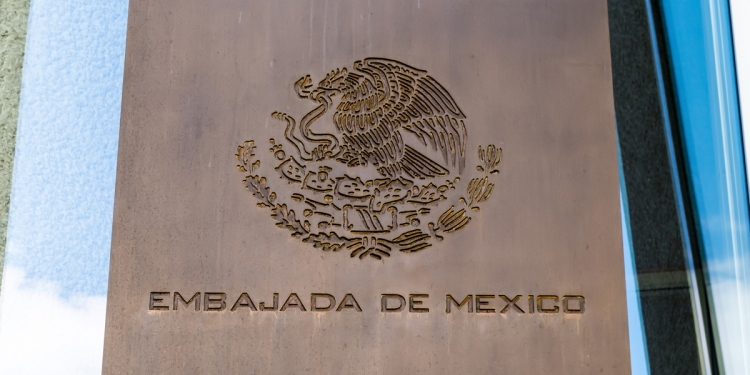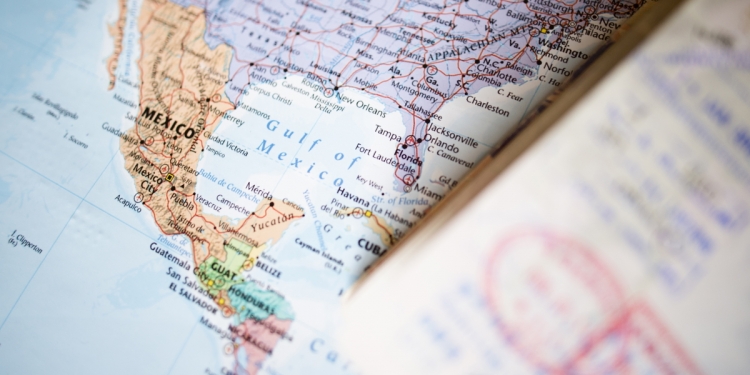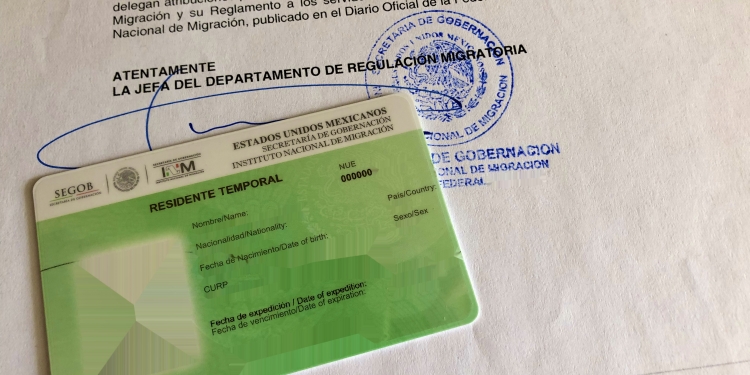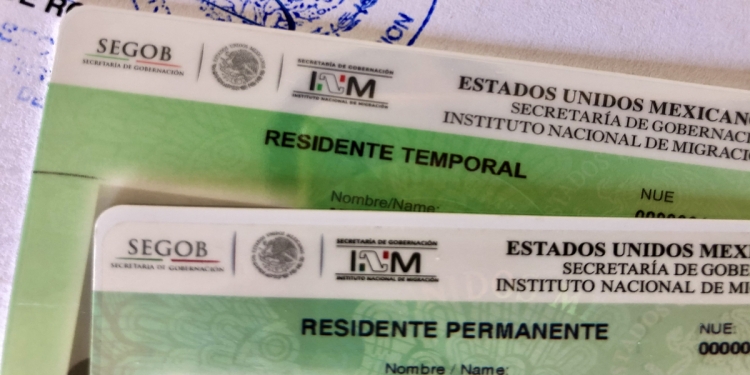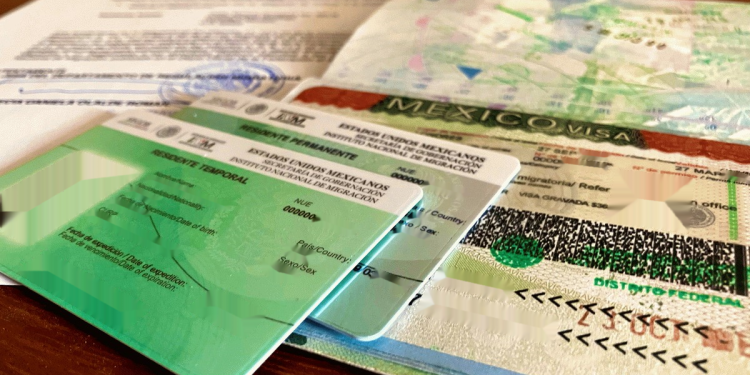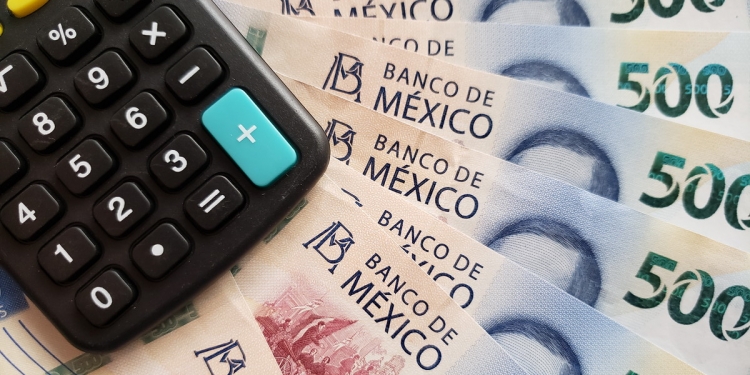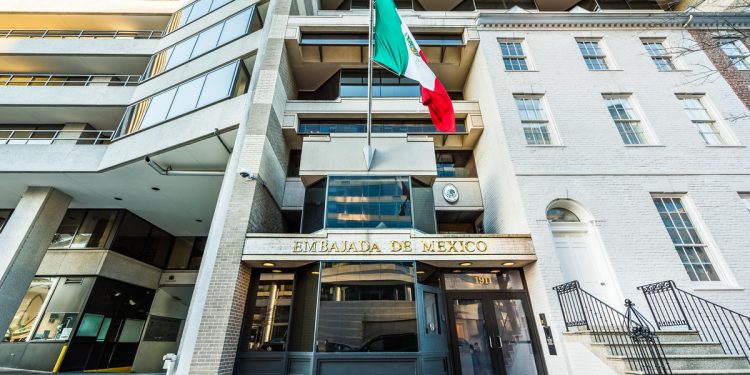With a few exceptions —mostly related to Family Unit circumstances— all applications for legal residency in Mexico must begin outside of Mexico, via a Mexican Consulate.
This article shares insights about choosing a consulate, describes how to request an appointment, outlines the format of the residency interview, and highlights certain types of document that you might need to get notarized/apostilled.
Choosing a Mexican Consulate
Most people applying for legal residency in Mexico will go to the Mexican Consulate nearest to where they live.
If the consulate nearest to you is not accepting residency applications, if their appointment availability is limited, or if there’s no Mexican Consulate in the place where you live, you may choose to apply at a different consulate.
Not all Mexican Consulates accept “out of area” applications. If you intend to apply at a consulate that isn’t near your usual place of residence, or isn’t situated in your home country or state, contact the consulate to ask if it accepts applications from people who are are not resident in the state or country where the consulate is situated.
Our associate can help you to identify a suitable consulate and assist you with making the appointment for your residency interview.
Requesting a residency interview at a Mexican Consulate
How Mexican Consulates schedule appointments for residency application interviews varies by location. Typically, consulates accept requests for residency applications in one of three ways:
Online booking. Many consulates use the Mexitel online appointment scheduling system. To use this, you create an account, choose the consulate’s location where you want to schedule an appointment, and then select an available date using the online calendar.
By email. Some consulates require you to send an email requesting an appointment. Response times vary, and when the consulate writes back, they will offer you available date(s) for interview.
Walk-in dates. Some consulates operate walk-in dates, whereby applicants show up in person on the ‘walk-in date’ days and get a service token for attention that day.
To find out which method the consulate you intend to apply at uses, visit the consulate’s website, or if you want assistance with the appointment scheduling, our associate can help.
Lead times for appointments at Mexican Consulates
Appointment availability and lead times varies widely between different Mexican Consulates, and the situation is often in a constant state of flux—driven by varying levels of local demand vs appointment supply.
Some consulates only ‘open up’ dates once a month or so on the online calendar, others update their availability more frequently.
If the consulate nearest to you doesn’t have much availability, or has very long lead times for appointment dates, you might consider applying at a consulate that’s farther away from where you live—though not all accept out of area applications, so check before you make the appointment.
Our associate monitors appointment availability. They know which consulates accept out of area applications, or can contact a consulate to find it if they do. They can help you identify a suitable consulate, and help you schedule appointments, and/or assist you in contacting a consulate to request an appointment in situations where the consulate will only accept correspondence from applicants.
Get assistance with your application for Mexico Residency
Our associate helps you to identify a suitable consulate to apply at, and assists with the appointment scheduling process. They can also help as you make your way through the entire application procedure—from the consulate interview to exchanging your visas for residency cards in Mexico.
Interview process at the Mexican Consulate
When you arrive for your interview at the Mexican Consulate, you ought to have your application form completed, and all of your supporting documentation prepared to present to the Consulate Officer.
Arrive in good time for your scheduled appointment!
Many Mexican Consulates are experiencing a high demand for residency interviews, and if you miss your scheduled appointment, it could take weeks or months to reschedule another date.
Interviews are usually conducted in the Consular offices of the Mexican Embassy. During the interview, the Consulate Officer assigned to your application will:
- Review your application for accuracy and completeness.
- Check that you have all the requirements present and in order, for example, your photographs, passports, and supporting documentation.
- Take payment of the fees for your procedure. (We recommend you carry the amount needed in cash in case the consulate does not accept electronic payments.)
- Check the documentary evidence you provide to support your application, e.g. bank statements, marriage certificates.
- Conduct an interview with you (and your partner, and family as relevant) to talk about your intentions for moving to Mexico.
- The consulate will also take a digital photograph and digital fingerprints of you and any other family members who are applying with you (including minors).
- If you’re applying with dependent minors (aged under 18 years), both parents must be present at the interview to sign the application for the dependent child(ren), otherwise a notarized letter from the absent parent authorizing the application must be submitted alongside the application.
Notification of outcome, visa validity
You will be notified on the same day of the interview if your application for a residency visa is approved.
When your application is accepted, the consulate will keep your passport(s) and place a residency visa sticker inside. They will usually issue the visa and return your passport(s) within 10 working days after your interview date.
The visa sticker is usually valid for six months from its issue date. Check the expiry date printed on the visa. You must arrive in Mexico before the visa expires and exchange it for a residency card within 30 days of your arrival date.
If you allow the visa to expire, or delay the exchange more than 30 days after your arrival date in Mexico, the visa becomes void and you’ll need to restart the application at a Mexican Consulate.
Get assistance with your application for Mexico Residency
Our associate helps you to identify a suitable consulate to apply at, and assists with the appointment scheduling process. They can also help as you make your way through the entire application procedure—from the consulate interview to exchanging your visas for residency cards in Mexico.
Key documents that might need to be apostilled
Depending on the situation, some types of key documents might need to be apostilled before you present them to the Mexican Consulate to support your application for legal residency.
Key documents include:
- Birth, marriage, divorce, and death certificates.
- Academic, professional, and corporate certificates.
- Bank statements, investment fund statements.
Some documents can be directly apostilled, whereas others must be notarized first and then apostilled. This article describes the apostille system.
Key documents must be apostilled when:
- The document(s) was not issued in Mexico; or
- The document(s) was not issued in the country where you are making the application.
Examples of situations that typically need key documents apostilled
Here are five situational examples to describe when key documents typically need to be apostilled for the Mexican Consulate to accept them.
Important! We recommend you verify document requirements with the consulate you apply at, as our associates have encountered a few cases where consulates requested an apostilled document even when it was not typically needed in that circumstance.
Example 1
You are an American Citizen applying in a US State. Your marriage certificate is issued in a different US State, and your bank accounts are based in a different US State to the one you are applying in.
Neither your marriage certificate or bank statements need to be apostilled as these key documents are all issued in one of the United States.
Example 2
You’re a British Citizen applying at the Mexican Consulate in London. Your marriage certificate was issued in the USA where you got married, and your bank accounts (statements) are issued by a bank in the UK.
The marriage certificate must be apostilled. Your bank statements do not have to be apostilled because the country where the bank accounts are based is the same country where you are applying.
Example 3
You’re an American Citizen living in France, applying at the Mexican Consulate in Paris, and your US marriage certificate and bank account statements are from the United States.
Your US marriage certificate needs to be apostilled and your bank statements need to be notarized in the US and then sent to be apostilled. This is because your key documents were not issued in the country where you applied.
Example 4
You are a German Citizen living in Brazil, applying at the Mexican Consulate in the Federal District of Brasilia. Your marriage certificate is from Spain, and the bank accounts you are referencing to qualify for residency are held at a Brazilian bank.
The marriage certificate must be apostilled. Your bank statements do not have to be apostilled because the country where the bank accounts are based is the same country where you are applying.
Example 5
You are an American couple living in the USA, applying at the Mexican Consulate in a US state. Your marriage certificate was issued in Mexico, where you got married, and your investment accounts are managed by a US-based investment fund.
Your marriage certificate does not have to be apostilled; although it was not issued in the United States (where you are applying) it was issued in Mexico. Your investment fund statements do not have to be apostilled because they are managed by an investment firm based is the same country where you are applying.
Document translations
Documents might also need to be translated, for example, if your key documents are not presented in English or Spanish, or are in a different language to the official language of the country where you apply. If in doubt, check with the Mexican Consulate in the country where you’re applying—our associates can also help.
How to get documents notarized and apostilled
Learn about preparing key documents with apostilles where this is required for submission to a Mexican consulate by reading our detailed article about the notarization and apostille (legalization) of documents for use in Mexico.
Get assistance with your application for Mexico Residency
Our associate helps you to identify a suitable consulate to apply at, and assists with the appointment scheduling process. They can also help as you make your way through the entire application procedure—from the consulate interview to exchanging your visas for residency cards in Mexico.
Learn more about Mexico visas and immigration
Mexperience publishes extensive information about visas, immigration and residency in Mexico, including:
- Learn about the principal routes to obtaining legal residency.
- Read a detailed summary of the application process for a Mexico residency permit.
- Our article about temporary and permanent residency describes the two main types of legal residency in Mexico.
- Our latest articles about visas and immigration keep you apprised of current situations including financial criteria for residency, fees, and managing your residency.
Get assistance with your application for Mexico Residency
Our associate helps you to identify a suitable consulate to apply at, and assists with the appointment scheduling process. They can also help as you make your way through the entire application procedure—from the consulate interview to exchanging your visas for residency cards in Mexico.
Mexico in your inbox
Our free newsletter about Mexico brings you a monthly round-up of recently published stories and opportunities, as well as gems from our archives.

